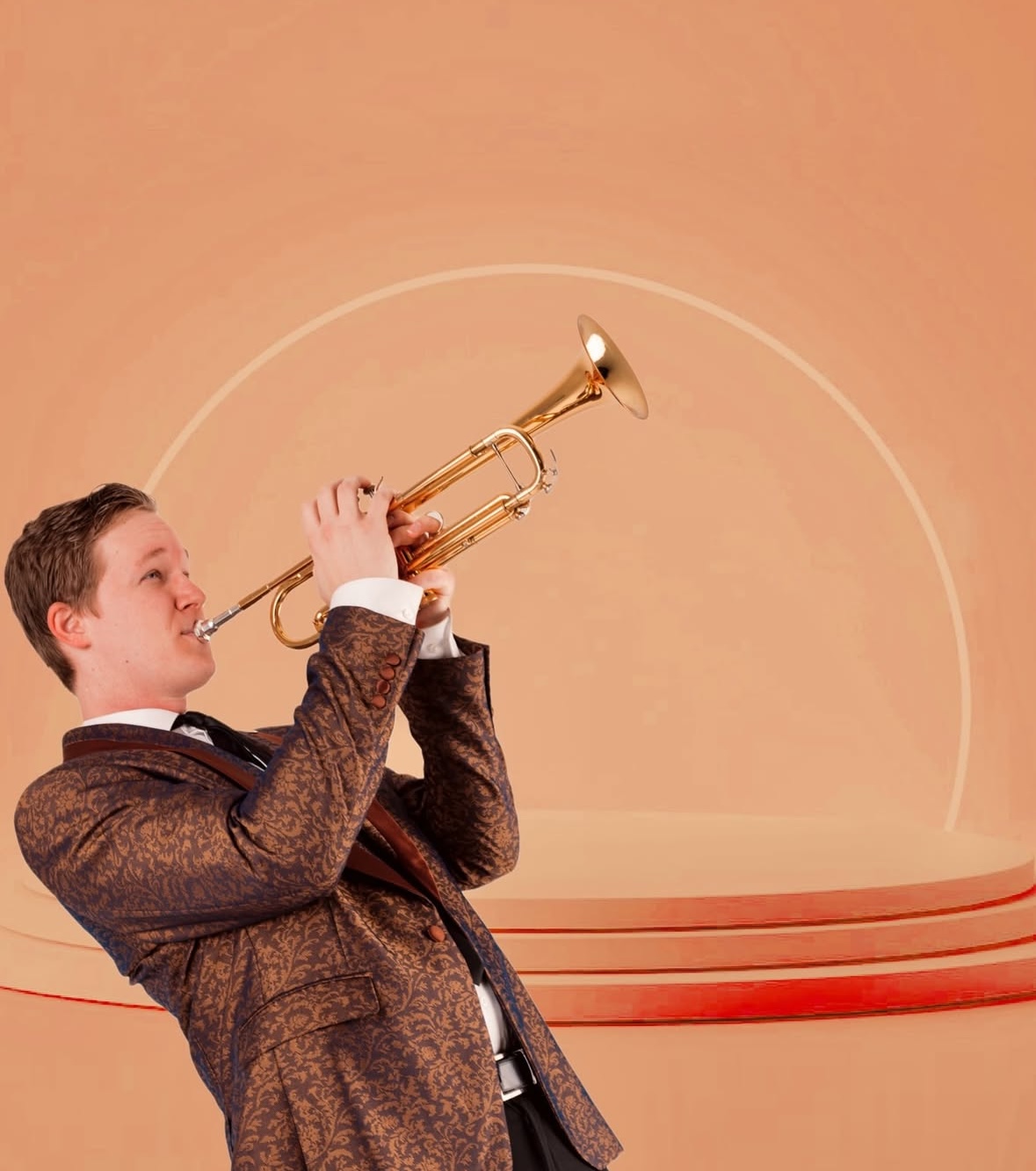

We’re looking forward to introducing you to Ryan Buchanan. Check out our conversation below.
Good morning Ryan, we’re so happy to have you here with us and we’d love to explore your story and how you think about life and legacy and so much more. So let’s start with a question we often ask: What are you chasing, and what would happen if you stopped?
What I’m chasing at this point in my career is really twofold: versatility and connection. As a trumpet player, those are the keys to building longevity in this industry. If you’re versatile, you can adapt to any genre, whether it’s jazz, classical, pop, or latin, and you can walk into any gig ready to contribute. And if you’re connected — not just in the networking sense, but in the sense of really connecting with fellow musicians on stage and with the audience in front of you — that’s when the music becomes memorable. That’s when it has impact.
On a more practical level, I’m chasing some very specific goals. Short-term, I’d love to earn a spot in the Disneyland Band. That’s always been a dream for me because it combines such a high level of musicianship with the ability to perform in front of thousands of people from around the world every day. It’s also a chance to develop consistency and range, because the repertoire is broad and the standard is incredibly high. I also want to continue touring with groups like Phat Cat Swinger, and Jens Lindemann and expand those opportunities to different groups and different parts of the world. Each year, I’d like to see the kinds of gigs I take on keep growing, whether that’s larger venues, bigger-name artists, or projects that really stretch me musically.
Long-term, my goals are modeled after two of my biggest mentors: Dontae Winslow and Wayne Bergeron. Dontae’s career inspires me because he’s been able to move fluidly between worlds. He’s played with massive artists like Kendrick Lamar and Justin Timberlake, he’s been part of the Super Bowl Halftime Show, and he’s just as comfortable composing a masterful film score as he is on stage in front of tens of thousands of people. To me, that’s the definition of versatility and relevance — being able to step into modern music culture while still holding onto your jazz and classical roots. I’d love to follow a path like his, sharing the stage with artists like Tyler, the Creator, Travis Scott, or Kendrick Lamar, and being able to bring the trumpet into spaces where people might not expect it.
Wayne Bergeron’s trajectory speaks to the other side of my dream. He is not only one of the most recorded trumpet players of all time, but he is truly the GOAT of this era. If you’ve seen a movie, chances are you’ve heard him play. I admire how he built a career where his sound became instantly recognizable in the studio world. That level of respect doesn’t come easy. It comes from years of consistency, precision, and a reputation for always delivering. If I could even come close to that, contributing to film scores, television, and cartoons the way Wayne or Rick Baptist have, it would be incredibly fulfilling. I know the industry is changing with AI and new technology, but I still want to have my playing recorded and preserved in a way that reaches people on a wide scale. Whether that’s through film, television, or albums with major artists, having that footprint is something I aspire to.
If I ever stopped chasing these things, I think the biggest loss would be momentum and purpose. My creativity depends on forward motion. Each new gig, each new connection, each new challenge adds to my growth and keeps me inspired. Without that, I’d risk stagnating not just musically, but personally. The goals I’m chasing give me direction and push me to become the kind of musician and the kind of person I want to be.
Can you briefly introduce yourself and share what makes you or your brand unique?
My name is Ryan Buchanan, and I’m a professional trumpet player and educator based in Los Angeles. I picked up the trumpet when I was nine years old, and from that moment on, music really became the center of my life. Through junior high and high school, I was lucky to have amazing mentors who pushed me to grow, and I built a reputation for being versatile. That versatility helped me continue my studies through college and eventually earn my bachelor’s degree in jazz performance and master’s degree in trumpet performance from Cal State Northridge.
Along the way, I’ve had the privilege of studying with some incredible mentors who really helped shape me into the musician I am today. Dontae Winslow was one of the first. His guidance not only developed my playing, it changed me as a human being. When I got to college, I studied alongside Wayne Bergeron and Dr. Erick Jovel, both of whom had a huge impact on me. Being around players of that caliber pushed me to raise my standards every day and gave me a firsthand example of what professionalism and excellence look like at the highest level. Their influence is something I carry with me into every gig and every classroom.
Since graduating, I’ve been focused on expanding both sides of my career — performing and teaching. On the performance side, I’ve been playing heavily with Hollywood’s Hottest Little Big Band, Phat Cat Swinger. Earlier this year, we did a tour across Florida, which was an incredible experience — not only getting to perform in different cities, but seeing how audiences far from home connect with our music. Opportunities like that keep reminding me why I love this career: it’s about bringing energy and connection to people through the trumpet.
On the education side, I’ve been teaching the Valencia High School Jazz Band and serving as professor of trumpet at College of the Canyons, where I also co-direct the jazz band. Teaching has been a really rewarding extension of my career, because it lets me pass along the lessons that shaped me while also growing alongside my students. It’s a balance of staying active as a performer while also giving back to the next generation of musicians.
Right now, I’m working on continuing to expand my reach — whether that’s touring more often with groups like Phat Cat Swinger, pursuing opportunities with larger ensembles such as the Disneyland Band, or steadily building my studio experience. I’m also currently reforming a brass band, which has been a personal passion project of mine since high school. Back then, I started a group called Brass Na$ty just for fun with some friends, and even though it didn’t last long, I brought it back a couple more times in college. Now, I’m reviving it once again under a new name: BrassQuake. The idea is to create something fresh, high-energy, and brass-driven that we can perform more regularly and hopefully grow into a staple project of mine moving forward.
What makes my journey unique, I think, is that I’ve always leaned into being a “swiss army knife” musician: someone who can adapt, step into different musical worlds, and bring the same passion whether I’m in a jazz club, a concert hall, or a recording studio. That versatility, along with my drive to connect with both musicians and audiences, really defines what I do and where I’m headed.
Okay, so here’s a deep one: What relationship most shaped how you see yourself?
The relationship that has shaped me the most, both as a person and as a musician, is the one I have with my girlfriend, Risejah. We’ve been together for about five and a half years now. We met right before the pandemic, and once we started seeing each other, we pretty much never stopped. She’s my best friend, and we do just about everything together — from traveling to new cities to going on dates to Disneyland or Universal, or even something simple like grabbing boba late at night. She makes all of those little moments in life feel meaningful.
One of the biggest ways she has shaped me is through support. Being a musician comes with a hectic schedule, late nights, and a lot of traveling, and she has always done her best to be there when it counts. She’s come out to a lot of my shows, whether it was the final concert of the Jens Lindemann tour at Vibrato Jazz Grill, which was a huge milestone for me, or Phat Cat Swinger shows in places like San Diego and Altadena. Even though she’s busy with her own work as a volleyball coach, she shows up whenever she can, and that means the world to me. Having someone in the audience who believes in you makes every gig feel that much more special.
Our relationship has also pushed me to grow a lot as a person. Communication is something we both believe is the root of solving everything, and we’ve learned to prioritize that, even when life gets hectic. Balancing two busy schedules isn’t easy, but we always carve out time for each other, whether it’s a trip to Little Tokyo, a vacation to Chicago or Hawaii, or just spending an evening painting or making music together. She actually played violin in high school and also dabbles in ukulele and guitar, so sometimes we’ll sit down and play music together just for fun. It’s special to share that connection, and it reminds me why I do what I do. On stage, if I ever doubt myself, I sometimes dedicate the performance to her in my head, and it gives me that extra push.
More than anything, this relationship has made me more self-aware. We both point out our differences and encourage each other to reflect and improve, and it’s made me a better partner, a better communicator, and honestly a better human being. I see myself building a long-term life with her. She understands what it’s like to date a musician — the long hours, the travel, the uncertainty — and we’ve figured out how to balance it in a way that works for both of us. Knowing that I have that kind of love and support not only shapes how I see myself, but it also gives me the foundation I need to chase big goals in my career without losing sight of what matters most in life
If you could say one kind thing to your younger self, what would it be?
If I could say one kind thing to my younger self, it would be: never be afraid to be your authentic self. Don’t try to be who others expect you to be — lean into what you love, even if it’s different from your family, your friends, or what people around you are into. Whether that’s the music you want to listen to, the way you dress, or the beliefs you hold, just own it. I really started embracing that around age 19, and the second I did, everything in my life shifted. My confidence grew, my career started opening up, and I felt happier and freer. Finding yourself is something everyone has to do at some point, and it’s not always easy, but once you lean into who you really are, everything else gets a lot clearer.
Alright, so if you are open to it, let’s explore some philosophical questions that touch on your values and worldview. Is the public version of you the real you?
I’d say the public version of me is pretty much the real me. For the most part, what you see on my social media or when I’m out in public is authentic. Of course, like most people, I tend to share the highlights, the gigs, the big musical accomplishments, or fun things I’m doing. I think that’s just the nature of how social media was designed, to capture those positive snapshots. But I don’t really try to create some fake version of myself. People who know me personally know that I’m a diehard Dodgers, Lakers, and Seahawks fan, and that comes across in my public life too. I talk about sports almost as much as I talk about music, because both are such a big part of who I am.
When it comes to music specifically, I try to be really intentional about keeping things real. There are a lot of musicians out there who post content that’s been punched in, edited, or polished to the point where it doesn’t actually reflect what they can do live. That might get clicks, but it doesn’t hold up when it comes time to actually play a show. I never want to be that person. So whenever I share a clip, it’s usually just me at a live show, or practicing at home, mistakes and all. I want people to see what I really sound like, because that’s who they’re going to get if they hire me.
So yeah, I’d say the public version of me is definitely the real me. I don’t see the point in pretending to be something else, and I think the authenticity I put forward is part of what’s helped me grow in both music and in life.
Okay, so before we go, let’s tackle one more area. Are you doing what you were born to do—or what you were told to do?
I definitely believe I’m doing what I was born to do. The only other times in my life that I imagined a different career path were when I was really young. First, I thought I wanted to be a firefighter like my dad. Then, like most little kids who play Little League, I dreamed about being a professional baseball player and putting on a Dodgers uniform. But it wasn’t until junior high that I realized music might actually be something I could pursue seriously.
In seventh grade, I auditioned for the district honor band. At that point, I wasn’t thinking about music as a career — honestly, I was just motivated by wanting to beat out a friend of mine who had been placed way ahead of me in our band’s trumpet section. I practiced hard with my private teacher, nailed the audition, and when results came out, not only had I beaten my friend, I ended up first chair in the entire district as a seventh grader. That moment made me stop and think: maybe this isn’t just something for fun. Maybe I could really do this.
Around that time, I had to choose between putting more energy into baseball or into music, and I realized baseball probably wasn’t going to take me as far. The kids were throwing faster, the competition was tougher, and I knew I wasn’t destined for the pros. Music, on the other hand, kept giving me these affirmations — first chair again in eighth grade, continued success through high school, and eventually into college. From that point forward, I knew I had found my path.
I’m lucky that I was never pushed into anything I didn’t want to do. My parents always supported me, whether I wanted to chase baseball or music. My mom may have helped sway my decision by pointing out that I could play music until I was 100 years old — like Doc Severinsen. Whereas in sports, even the greatest athletes like LeBron and Tom Brady had to retire in their 40s. That freedom let me figure out on my own that music wasn’t just something I could do, it was what I was born to do.
Contact Info:
- Website: https://hornsnhalos11.wixsite.com/ryan-buchanan-music
- Instagram: @hornsnhalos11
- Facebook: https://www.facebook.com/profile.php?id=100005693266316
- Youtube: https://www.youtube.com/channel/UCRuX8zUm9cyuAaTTYaHWBNQ
- Other: Private Lesson Rate: $80 per hour
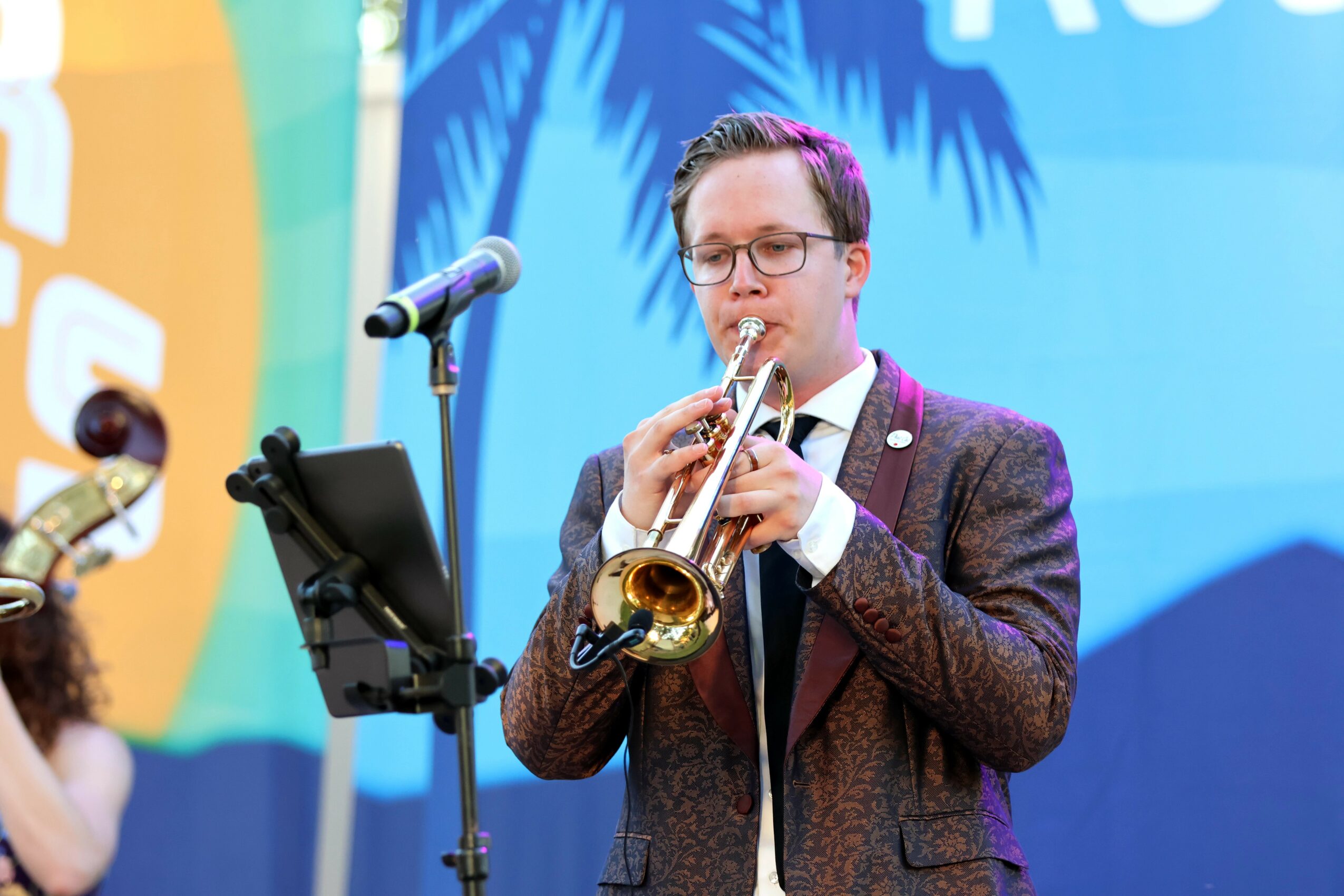
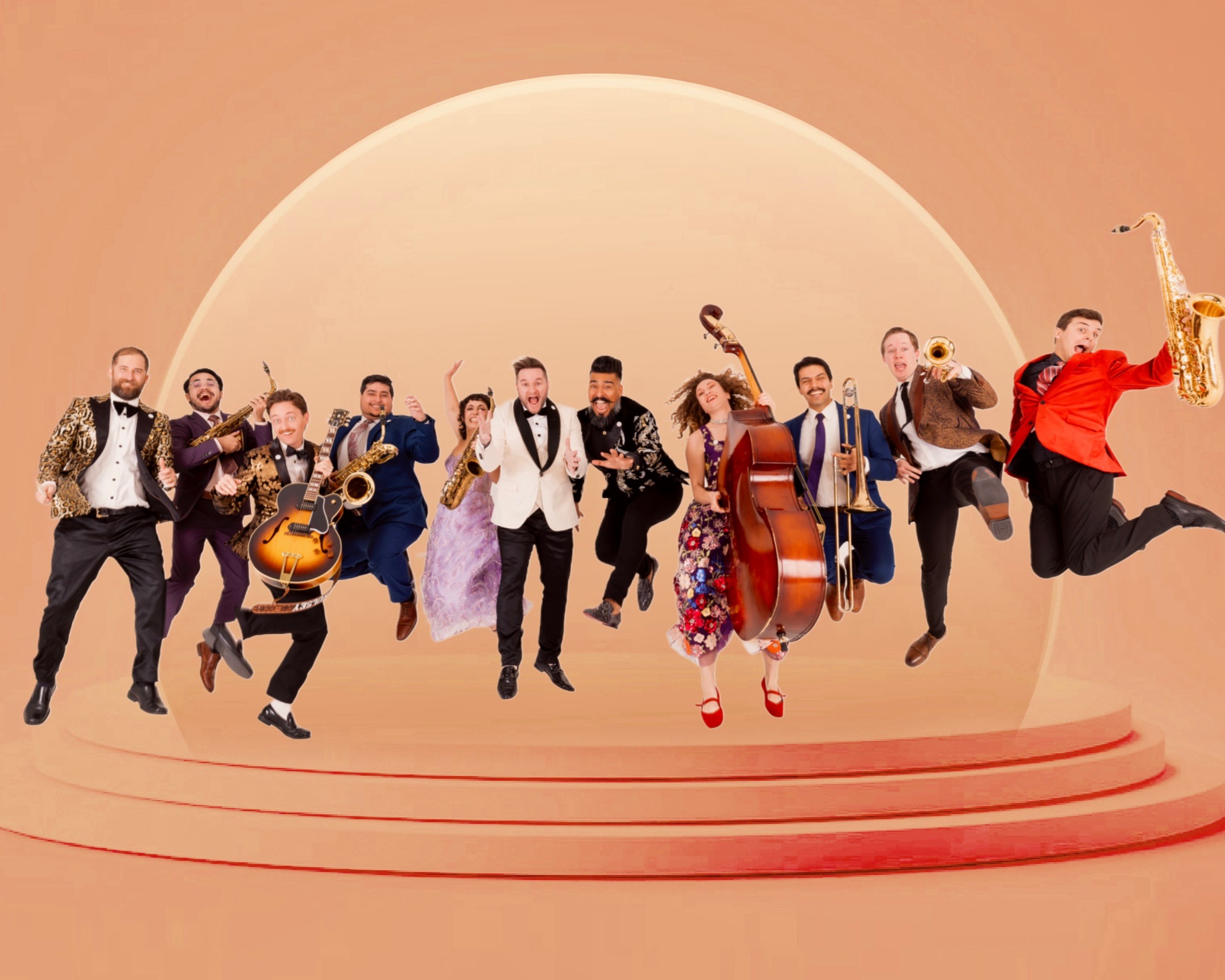
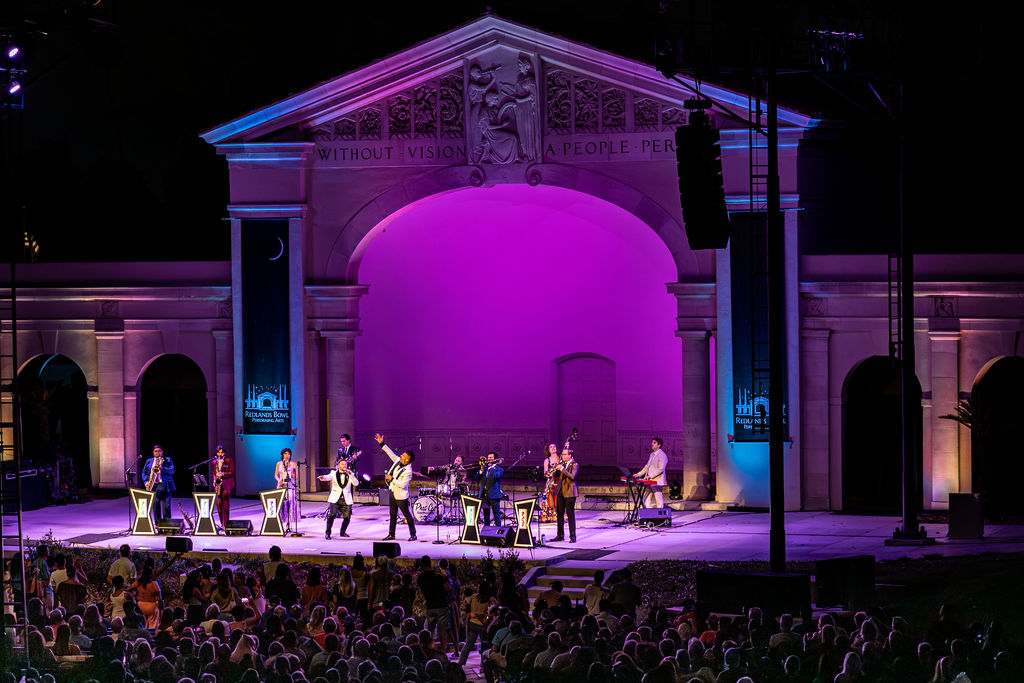
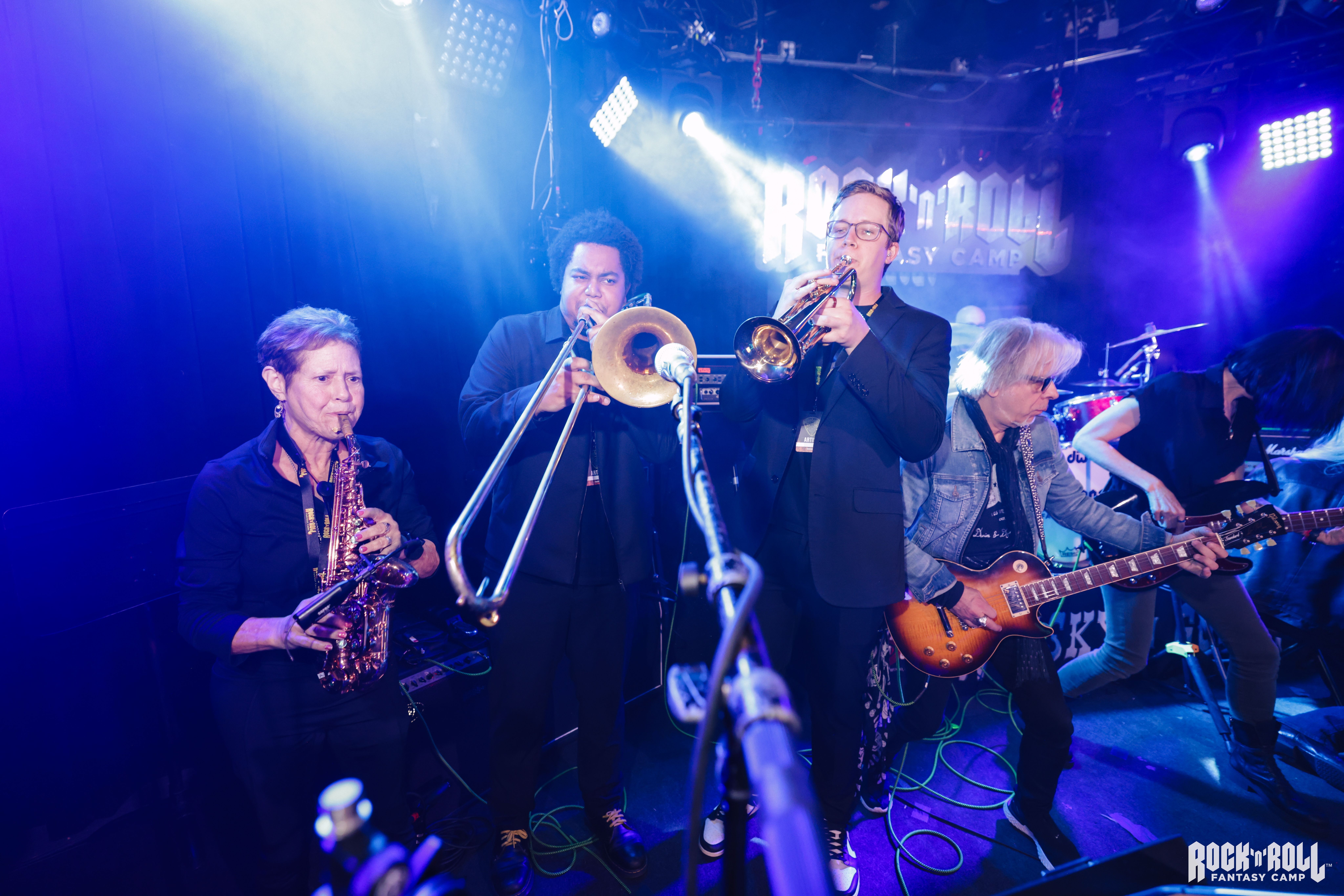
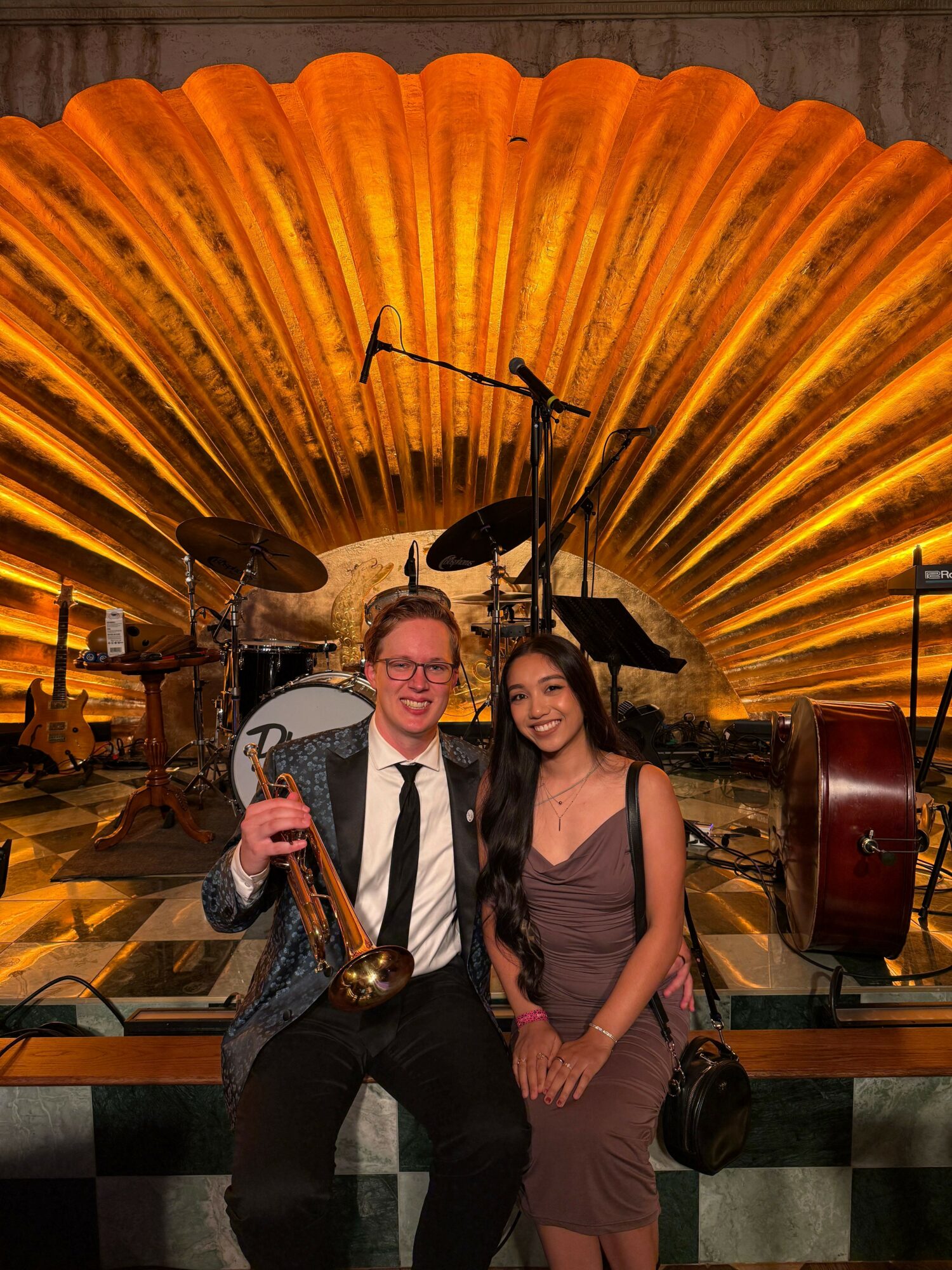
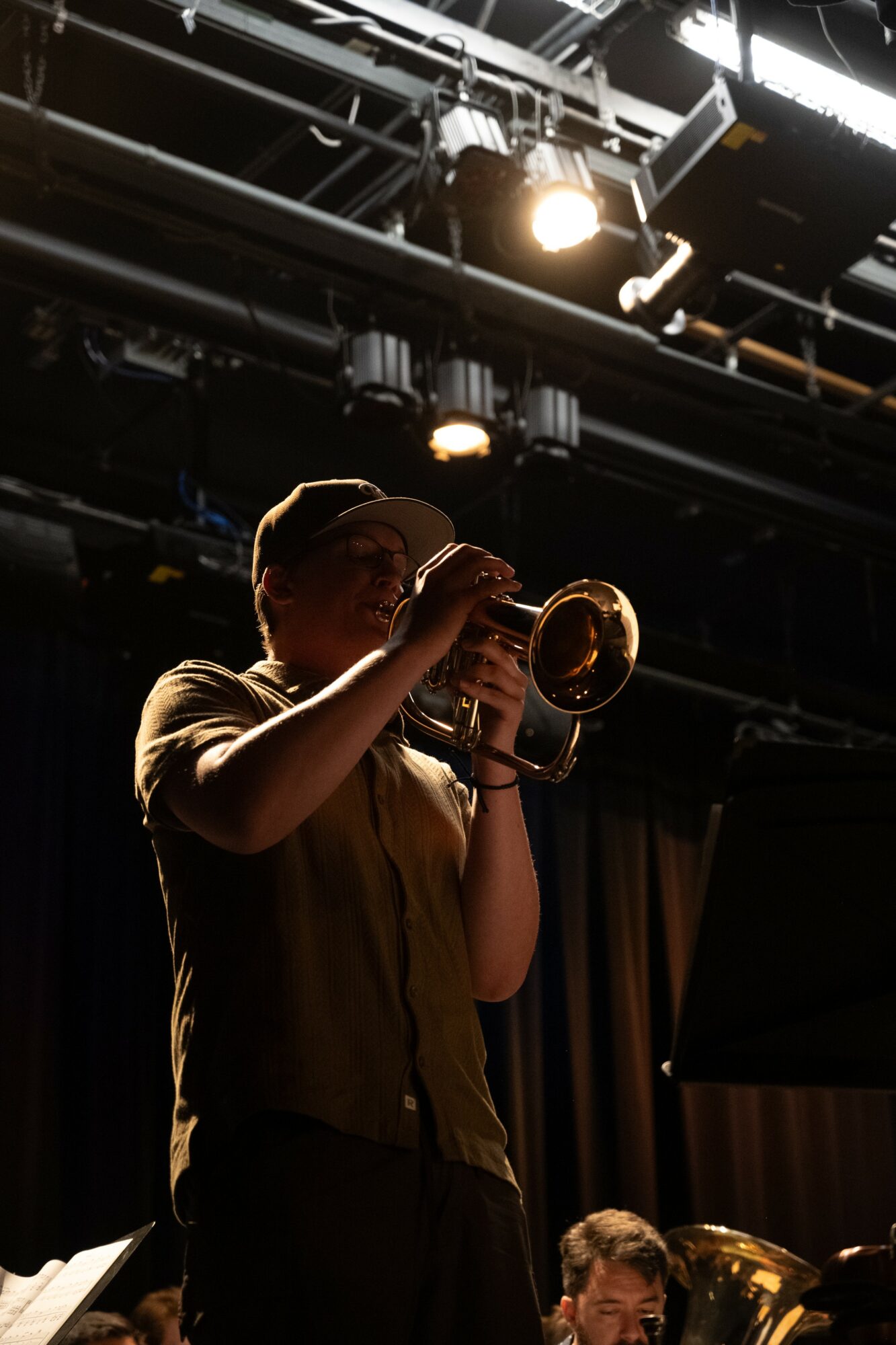
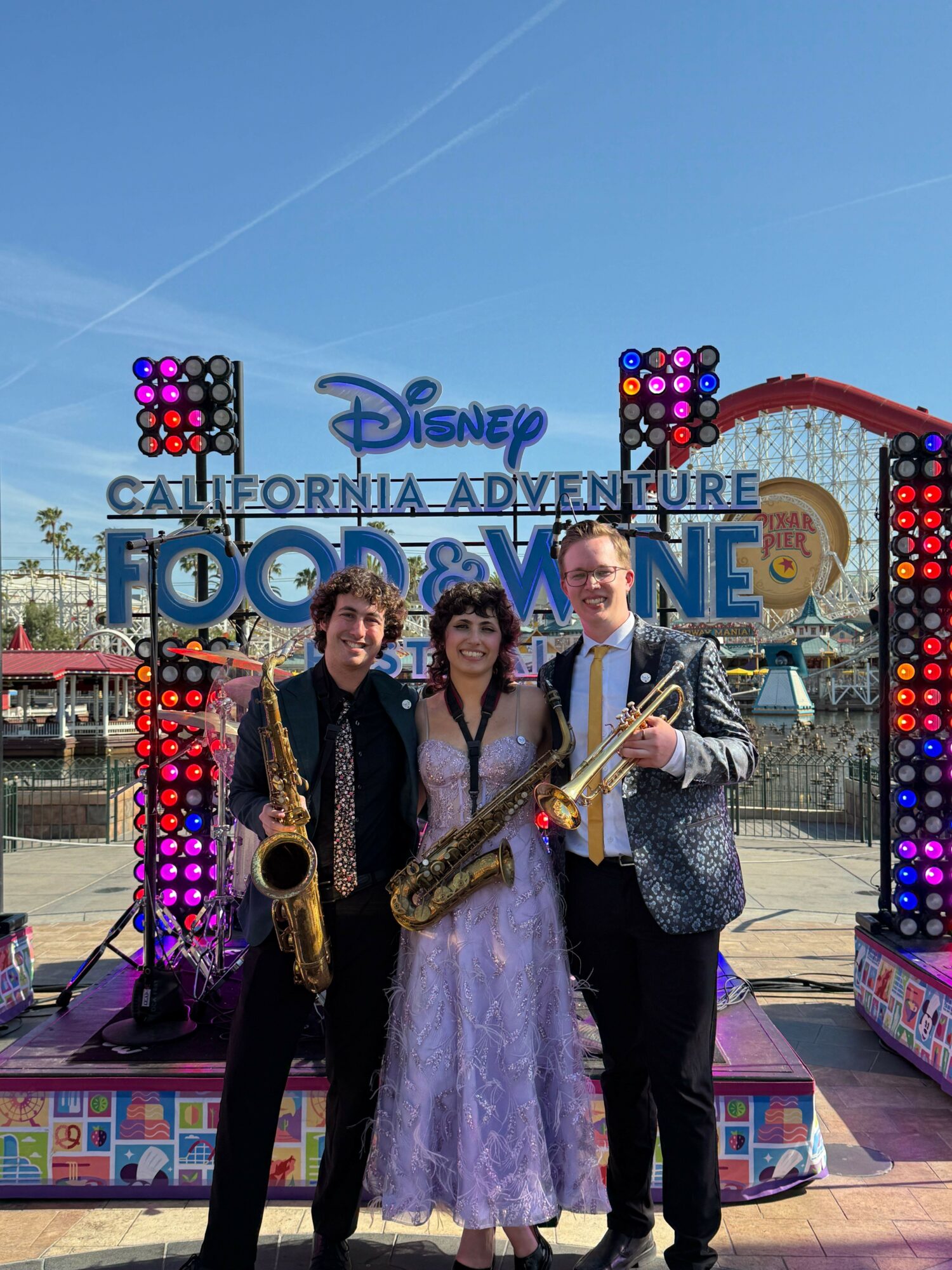
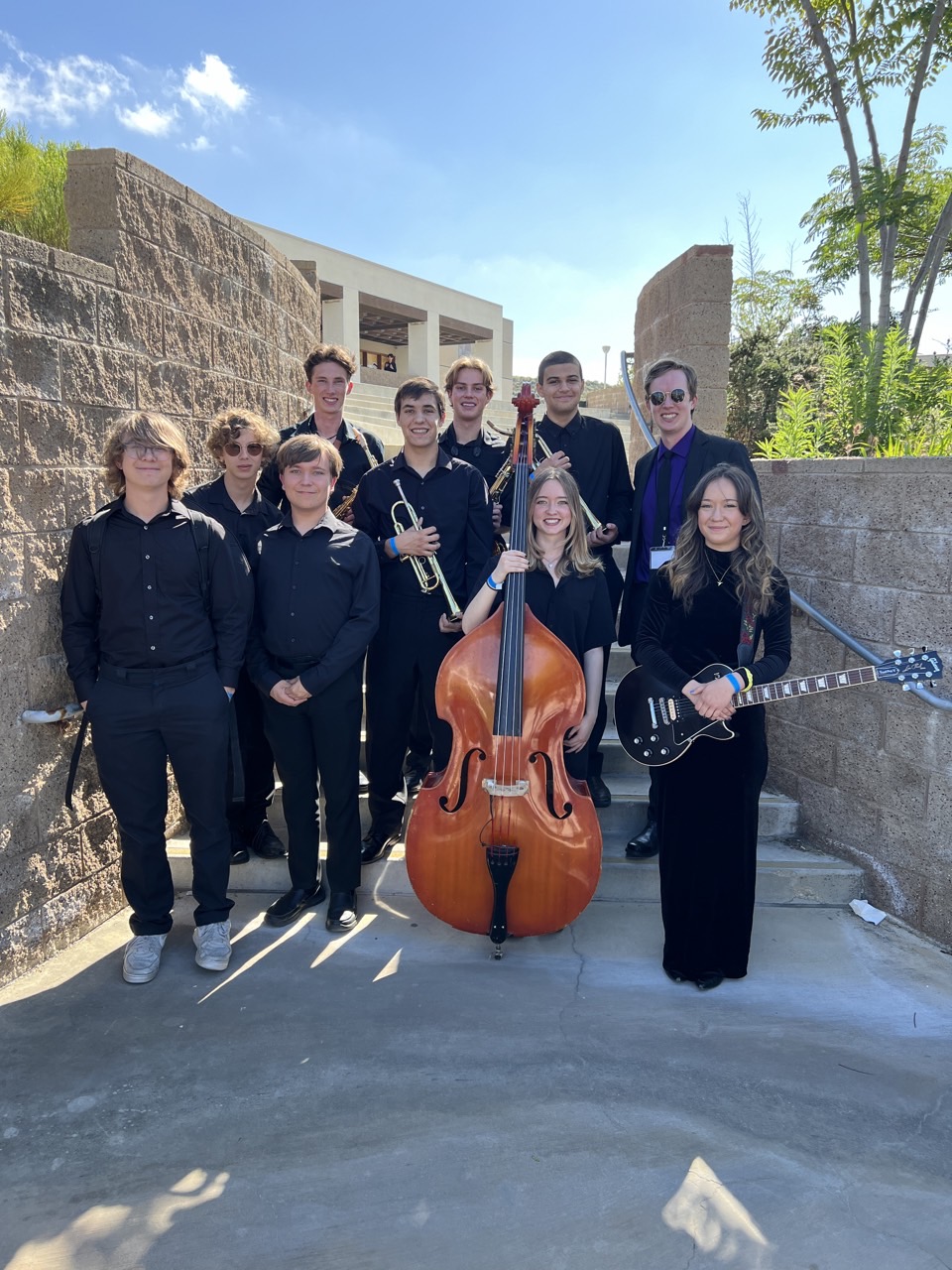
Image Credits
Donnae Menchaca, Jennifer Buchanan, Hilary Peters














